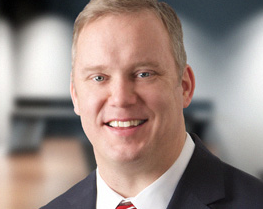
Peter Thurlow
Pete Thurlow is a patent lawyer, focused on presenting strategies to help protect inventors, small businesses, and multinational corporations’ intellectual property rights. Pete’s practice involves the full spectrum of patent law.
Pete is also currently President of the New York Intellectual Property Law Association (NYIPLA), the primary intellectual property law association in New York with more than 1,250 members. Based on Pete’s extensive experience working on matters at the USPTO, he received a second three-year term starting in January 2016 from the U.S. Secretary of Commerce to serve on the USPTO’s Patent Public Advisory Committee (PPAC). Based on Pete’s significant experience on USPTO post-grant matters, Pete chairs the USPTO’s PTAB subcommittee. The PPAC provides an annual report to the White House, U.S. Commerce Department, House and Senate Judiciary Committees, and the USPTO.

Recent Articles by Peter Thurlow
After reviewing the way the term “person” is used throughout the statute it is clear that in some provisions of the Patent Act, the term necessarily should be interpreted to include the government (e.g., 35 U.S.C. § 296(a), expressly including government in the definition of “person”), while in other provisions the term “person” should be interpreted to exclude the government (see, e.g., 35 U.S.C. §§ 3(a) and 6(a), which clearly exclude the governmental entities like the USPS, but would include individuals in the government’s employ). Accordingly, reliance on universal definitions from the Dictionary Act, 1 U.S.C. §§ 1 and 8, governing the U.S. Code in general, and likewise on other general definitions of “persons” from relevant case law (e.g., Cooper), may well cause inadvertent problems with respect to the Patent Act. Rather, as set forth below, the answer to the question posed by this case should depend on the legislative context relating to creation of various post-issuance patent challenge proceedings and the PTO’s longstanding interpretation of “person” to include the governmental entities for purposes of ex parte and inter partes reexaminations.
The proposed rule would adopt the narrower standard articulated by the Federal Circuit in Phillips v. AWH Corp., where the “words of a claim are generally given their ordinary and customary meaning,” which is “the meaning that the term would have to a person of ordinary skill in the art in question at the time of the invention.” 415 F.3d 1303, 1312-13 (Fed. Cir. 2005). Additionally, under the proposed approach, the Patent Office would construe patent claims and proposed claims based on the record of AIA proceeding, and take into account the claim language, specification, and prosecution history. In response to the Patent Office’s notice of proposed rulemaking, the New York Intellectual Property Law Association (NYIPLA) recently submitted comments endorsing the Patent Office’s proposed changes.

![[IPWatchdog Logo]](https://ipwatchdog.com/wp-content/themes/IPWatchdog%20-%202023/assets/images/temp/logo-small@2x.png)
